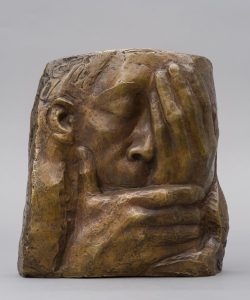 The Second Sunday in Lent 2025 St Andrew’s Milngavie
The Second Sunday in Lent 2025 St Andrew’s Milngavie
Today we celebrated the Second Sunday of Lent accompanied by Alison.
Yesterday several of us gathered to enjoy a walk up to Dougalston in the beautiful spring sunshine. We all enjoyed tea and a good quantity of homemade cake on return to the hall. Thank you, Jane and Tim, for organising this.
This Week
Tuesday 10am – Prayer Group in the Garden Room
2pm – Lent Course, All Saints Small Hall
Thursday 10am – Said Holy Communion followed by coffee in Friendship House.
Friday 11.30am – Funeral of Andrew Long at All Saints
The Lent Study Group began on Tuesday 11th March in the small hall at All Saints. We are reading Wild Bright Hope – all welcome.
There is also an opportunity as in previous years to join the online Ignatius Spirituality Centre Lent Course. Steve Parratt has kindly given us copies in book form to accompany the online course. Please let me know if you would like one.
Readings for next Sunday – Third Sunday of Lent – Isaiah 55:1-9 1 Corinthians 10:1-13 Luke 13:1-9
Today’s readings – Genesis 15:1-12, 17-18, Philippians 3:17-4:1, Luke 13:31-5
Today’s passage from St Luke’s gospel is sometimes known as “The Lament for Jerusalem” and it is the inspiration for the work of the same title by the late composer Sir John Tavener.
It is written in a choral style and was first performed in 2003. John’s Lament incorporates Christian, Jewish and Muslim influences. As the music rises in a crescendo of “cosmic laments” it takes on layers of meaning. One influence is “The rivers of Babylon” that mournful psalm sung by the Israelite exiles in Babylon. Another part is drawn from the Islamic poet Rumi’s poem, Masnnavi. Through its Jewish and Muslim references, the lament becomes a heartfelt appeal for understanding, tolerance and love. And it speaks to us through the years to become a lament for modern Jerusalem – still sadly the focus for so much religious and political strife.
It is a universal lament as human voices strife to create a divine sound, echoing the longing which all human beings feel so deeply – the longing to reach God which lies at the heart of our every feeling, thought and action. John described the work as a “love song, lamenting our banishment from home” and of course our true home is with God.
Today we lament for many places and people of the world. We continue to lament for Jerusalem and the Holy land, for the future of Ukraine and peace in Europe. We lament for our own situations.
It is only natural when threatened with your life in any kind of way to want to run for it, abandoning any sense of a higher purpose or a job left unfinished. But when the pharisees tell Jesus that Herod wants to kill him he is undaunted. Instead, he stands his ground in defiance and even throws an insult Herod’s way “that fox.”
Then comes one of those spine-chilling moments which takes on a resonance in Lent “on the third day I finish my work.” There was so much going on during the ministry of Jesus.
To those around him it must sometimes have seemed to be a dizzy whirl of miracles and parables. And doubtless they did not – could not – pick up on the true significant of his words “on the third day” But hindsight is a wonderful thing and we two thousand years later have a privilege insight into the full meaning of what Jesus said.
But then out of the blue, Jesus seems to crumble with grief. And we ask why? What has got into him?
Surely, it’s not Herod’s threat – his faith in God’s purpose remains solid. So, is it really Jerusalem that Jesus is lamenting? The city certainly did and still does have special significance and as we know a land which continues to experience conflict and unrest.
But above that there is something universal in what Jesus says as though Jerusalem were a symbol for all human failing and cruelty.
Perhaps more than Herod’s words, more than Jerusalem’s flaws, Jesus is suffering under the weight of a burden he carries within. For, though he knows that Herod’s immediate threat is empty he also knows that he will face death before too long. It must have been so lonely at times, knowing what was to come, while everyone around him treated his ministry like a party, and he the life and soul of it all.
It’s all too easy to see Jesus as an abstract symbol of divinity. That he was fully human and fully divine is a paradox we have to take on faith, but here surely, is a glimpse of his true humanity. It reminds us that Jesus really did become flesh and blood and experienced those emotions that we all do – grief, loss, yearning, fear, doubt.
The theologian Paul Tillich said “doubt is not the opposite of faith, it is one element of faith” And there is nothing shameful, weak, or wrong in doubting or even crumbling. What would be damaging would be to hide or deny it.
Sir John Tavener interprets the lament for Jerusalem as a moment when Jesus loses sight of God. But he also sees that loss as temporary. For while Jesus knows he will suffer and die, he also knows that the third day will follow.
When we are adrift on a swirling sea of uncertainty, we don’t need to cling to a raft of conviction. On the contrary, if we let ourselves go into our fears and doubts, we are demonstrating an even greater faith: faith that God will ultimately find us and set us again on dry land, rescuing our lamenting souls.
